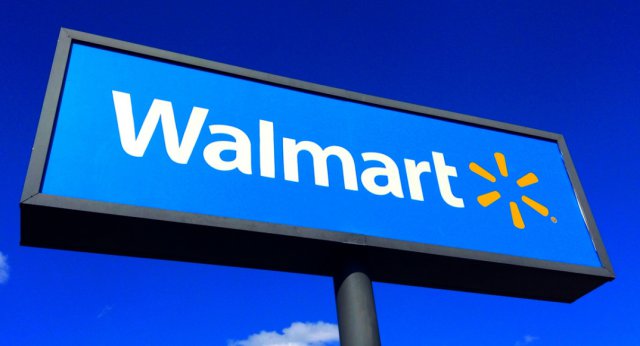Wal-Mart Stores Inc. has opened a new front in its battle with Amazon.com Inc. The world’s largest retailer has applied for a U.S. patent for a floating warehouse that could make deliveries via drones, which would bring products from the aircraft down to shoppers’ homes.
In some embodiments, apparatuses and methods are provided herein useful to transport unmanned aircraft systems to delivery products. In some embodiments, gas-filled aerial transport and launch system, comprises: a transport aircraft comprising: a gas chamber; and a carrier compartment where the gas chamber induces a lifting force on the carrier compartment; at least one propulsion system; and a navigation control system that controls the direction of travel of the transport aircraft; wherein the carrier compartment comprises: an unmanned aircraft system (UAS) storage area configured to receive multiple UASs; and an UAS launching bay that enables the UAS to be launched while the transport aircraft is in flight and while the UAS is carrying a package to be delivered.
The images filed with the paperwork include a diagram of the aircraft that looks very similar to the decades-old Goodyear blimp, which first flew in 1925.
The migration to the skies represents the latest volley in a clash between Wal-Mart and Amazon to grab shoppers’ attention, loyalty and dollars. In the process, the companies are increasingly treading on the other’s turf: Amazon is opening physical stores and agreed to pay $13.7 billion for upscale grocer Whole Foods Market Inc. Wal-Mart, meanwhile, has beefed up its e-commerce business through acquisitions and offers like free two-day shipping.
An unmanned airborne warehouse — laden with drones — could help retailers lower the costs of fulfilling online orders, particularly the so-called “last mile” to a customer’s house, which is usually handled by a local or national logistics company. To avoid that expense, Wal-Mart and other retailers often encourage shoppers to pick up those orders at the store, where they might grab a few additional items. Earlier this week, Target Corp. agreed to acquire a software company that coordinates local deliveries.
“The core challenge of traffic and driving distance in any major city or in a very rural location can be helped by a floating warehouse,” said Brandon Fletcher, an analyst at Sanford C. Bernstein. “Movable warehouses are a really nice idea because any flexible part of a logistics system allows it to be more efficient when demand varies wildly. The e-commerce world suffers from highly variable demand and more creative solutions are needed.”
Town to Town
A movable warehouse could serve a wider distribution area, Fletcher said, compared with a traditional warehouse that can only fill orders within a fixed driving distance. The airship could fly to one town and release a flock of drones to deliver packages, after which the drones would return to the vessel and restock while it flew to the next town. Such a system would be more efficient than having the drones fly back to a central distribution hub, according to research firm CB Insights.
“There are numerous ways to distribute and deliver products,” according to Wal-Mart’s patent application. “Getting the product to a delivery location, however, can cause undesirable delays, can add cost and reduce revenue.”
Wal-Mart’s application stands a good chance of getting approved as it goes into more detail about the implementation of a gas-filled aircraft than Amazon’s patent, which is a more general description of the concept of airborne-delivery systems, according to Khaled Fekih-Romdhane, managing partner at patent-licensing firm Longhorn IP.
This isn’t the first time Wal-Mart has shadowed Amazon’s intellectual property. In October, it filed a patent application for a web-based system similar to Amazon’s Dash buttons, which can quickly reorder household goods like paper towels or razor blades. The technology could also gather shopper data, such as how often a product is used and at what times of day.
In recent years, Wal-Mart has significantly stepped up its patent filings, many of which focus on web development and easing shoppers’ journey through the store. The company has also filed a patent for in-store drones that would ferry products from the backroom to the sales floor.
Source: Fortune

